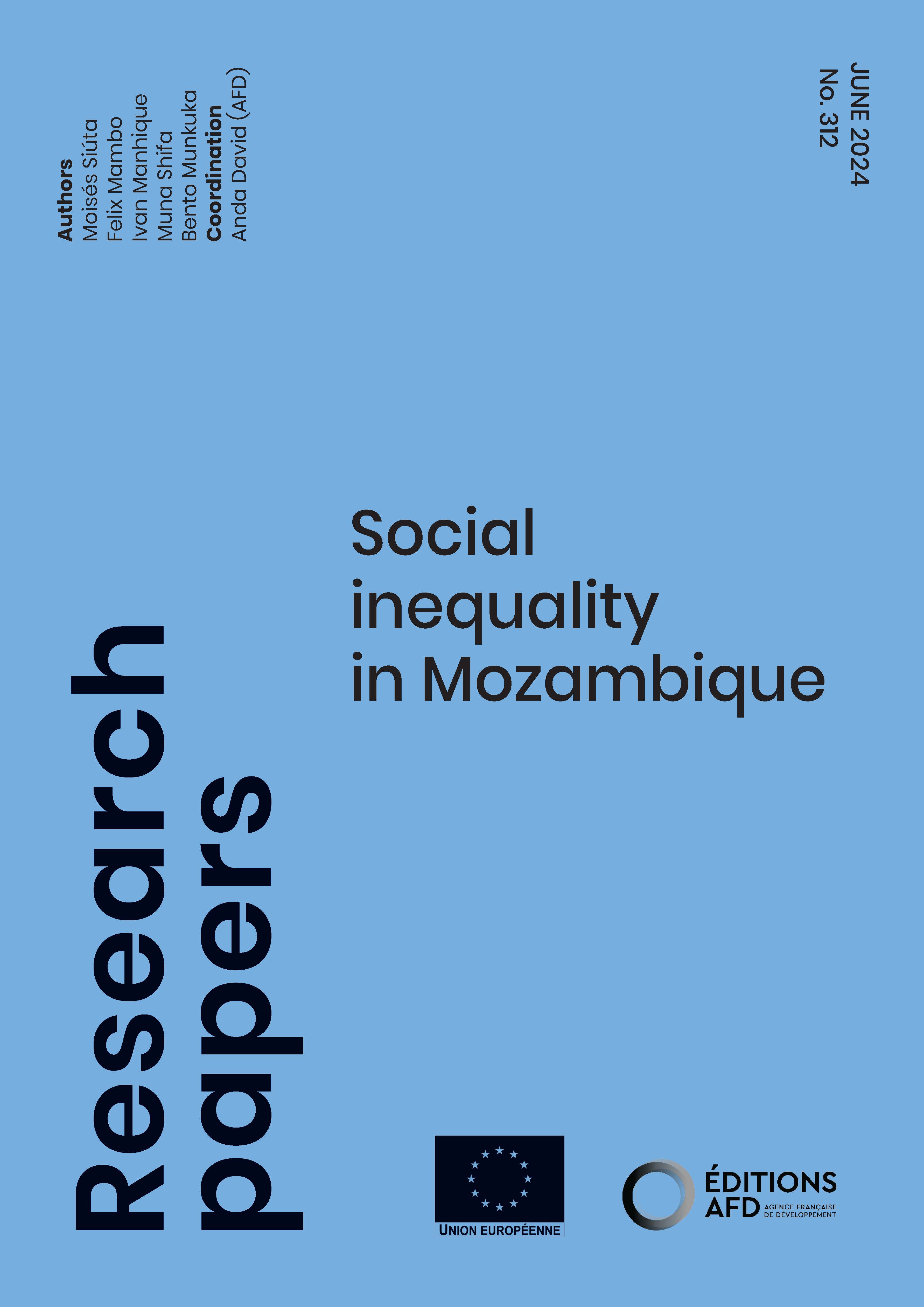Share the page
Social inequality in Mozambique
Published on

This study presents the profile of social inequality in Mozambique from 1997 to 2017. Despite progress in reducing poverty within the government's efforts to achieve Sustainable Development Goals, the country still faces persistent challenges in reducing inequality and policy effectiveness, particularly in employment and access to basic services such as education, electricity, water, and sanitation. The study indicates that inequality in access to basic services tended to decrease until 2017. Gender inequality shows a trend of reduction, but households headed by women represent the most dis-advantaged group with lower access to basic services. At the spatial level, rural areas, especially districts located far from the provincial capital cities, exhibit lower access to basic services.
This paper was produced with the support of the EU-AFD Research Facility on Inequalities.
Useful Information
-
Authors
-
Moisés Siúta, Felix Mambo, Ivan Manhique, Muna Shifa, Bento Munkuka
-
Coordinators
-
Edition
-
312
-
Page number
-
64
-
ISSN
-
2492 - 2846
-
Collection
-
Research Papers
